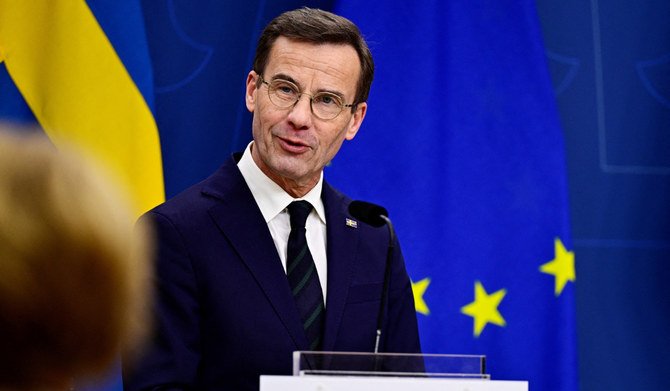Sweden’s bid for NATO membership, prompted by Russia’s invasion of Ukraine in 2022, stands on the brink of approval pending Hungary’s ratification vote, signaling a potential sea change in Sweden’s defense strategy and the broader geopolitical dynamics of the region.
The decision to pursue NATO membership by Sweden marks a significant departure from the long-held policy of neutrality, which traces its roots back to the aftermath of the Napoleonic wars.
Despite this historical stance, Sweden has gradually deepened its ties with NATO over the years, participating in various partnership programs such as the Partnership for Peace since 1994.
However, public opposition and political hesitancy, notably within the ranks of the Social Democrats, have previously impeded discussions on full NATO membership.
Also read: Finland to join NATO, says military alliance chief
This reluctance shifted dramatically following Russia’s aggression in Ukraine, which prompted Sweden to reassess its security posture.
Formerly staunch advocates of neutrality, Swedish lawmakers pivoted decisively when a majority in parliament voted in favor of applying for NATO membership in May 2022.
This marked a profound shift in both public sentiment and political consensus within the country.
Sweden, renowned for its commitment to humanitarian efforts, brings a unique perspective to the NATO alliance.
While historically prioritizing a strong military for the protection of its neutrality, Sweden shifted its focus towards peacekeeping efforts in the post-Cold War era, resulting in a reduction in defense spending.
However, recent geopolitical developments, particularly Russia’s actions, have spurred Sweden to ramp up its defense spending with the aim of exceeding 2% of GDP by 2024.
Joining NATO necessitates Sweden embracing a more collaborative approach to defense, departing from its historical reliance on self-sufficiency.
This entails preparing to defend not only Swedish territory but also that of allied nations, signaling a fundamental shift in military strategy and calculations.
The potential inclusion of Sweden and Finland in NATO would effectively encircle the Baltic Sea region with alliance members, reshaping the geopolitical landscape of Northern Europe.
Analysts view this development as the final piece in NATO’s strategic puzzle in the region.
The implications for Sweden’s defense posture are far-reaching, requiring a recalibration of power dynamics and a recognition of NATO’s collective strength in deterring potential threats.
Transitioning from a perception of a smaller state to that of a member of a larger alliance fundamentally alters Sweden‘s strategic calculus and could potentially contribute to a reduction in regional tensions.
Sweden’s imminent NATO membership bid represents a significant paradigm shift in defense strategy, transitioning from a stance of neutrality to one of collaborative security within the alliance.
This move carries broader implications for regional stability and the geopolitical balance of power in Northern Europe.
